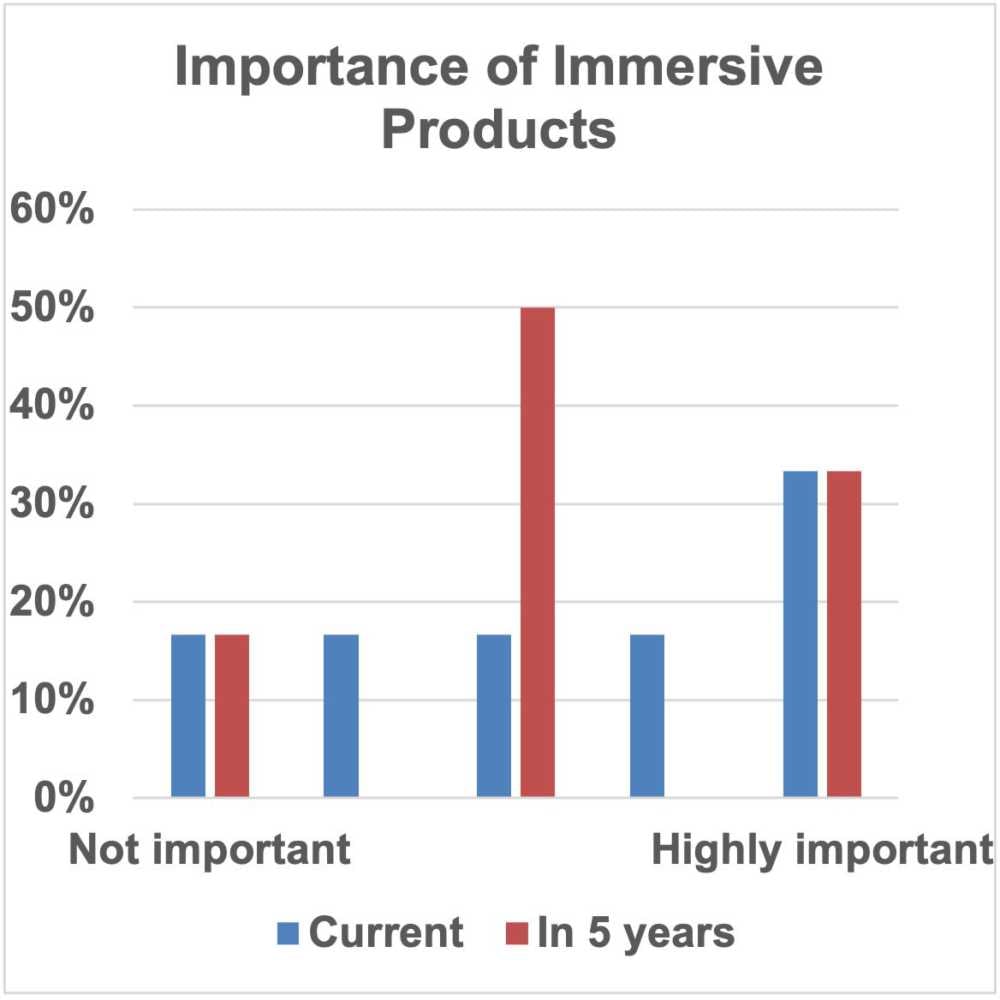Pro audio manufacturers predict immersive growth
- Details

The Professional Audio Manufacturers Alliance (PAMA) conducted the survey, asking its member companies to assess the impact of the burgeoning immersive audio movement on their product development and business. Two-thirds of participating companies reported significant current overall demand for products with immersive audio capabilities. Eighty per cent of the respondents expect products with immersive audio features to be a growth area in their company's portfolio of products over the next five years, with a third of all respondents seeing great potential for growth.
Unsurprisingly perhaps, given an evolving marketplace with varied levels of maturity across market verticals, current immersive audio product demand is cited as strongest in film, TV and gaming where established protocols are baked into delivery formats and devices. “Dolby Atmos is in a leadership position for immersive formats for both music and film/TV,” says Chris Hansen, director of recording, Harman International (JBL, AKG, Soundcraft, Lexicon and more). “Sony's game console, as a delivery system, helps push their Sony 360 format.”
Gary Boss, marketing director for Audio-Technica, was also among those giving Dolby a nod: “Atmos seems to be getting the most traction,” he shares, though with qualification. “We feel people are just now figuring this out and what their workflow will be, so no real ‘standards’ are universal yet. We are working on microphone solutions that can be compatible with many different workflows.”
Looking at product demand by category, and filtering for product categories cited as applicable to the product line of a given respondent company, studio applications win the current demand contest. Studio loudspeaker systems and studio monitor controllers were the highest-rated categories with good overall demand edging towards high, and good demand for products with immersive mixing features for studios. On the capture side, low to little demand was cited in the survey for surround/immersive microphone products.
Consumer immersive audio experiences are dominated by headphones for portable listening, internal television speakers or soundbar-based home systems for gaming and streaming/broadcast playback. “Focus on film, themed entertainment and gaming – that’s where immersive is most prevalent,” says David Fuller, QSC’s VP product development – pro audio. These immersive experiences, says Marc Lopez, vice president of marketing, Americas, at d&b audiotechnik, serve “as an entry point for consumer understanding of immersive sound in order to create the demand for deeper audio experiences beyond their living room or cinema.”
While only half the respondents cited studio products for immersive mixing as applicable to their product line, all respondents cited some demand for products offering immersive mixing capabilities for live sound – the only product category in the survey where all respondents found the category applicable to their product line. Those that cited good or better demand for immersive products for studio cited identical demand for live immersive mixing products, with little to low demand the average across all respondents.
Immersive loudspeaker systems for live sound garnered responses across the range of low to high demand from those with applicable products, with the average just on the fair side of the scale. Demand for theatre-specific immersive loudspeaker was rated slightly higher than for live sound loudspeakers in general.
Live sound is more a wild west for immersive audio than with theatre, broadcast, streaming and gaming. “A lot of different tools are required to help promote and give confidence to customers that these systems will perform to their expectation or beyond the expectation of a traditional system,” says d&b audiotechnik’s Lopez. “Typically, ‘hearing is believing.’”
“There is no real standard for live reinforcement,” says QSC’s Fuller, in terms of immersive speaker configurations and protocols. “While FOH engineers for A-list artists are experimenting with their touring rigs, many installed venues can barely afford a stereo PA, let alone distributed PAs for immersive.”
“On rare occasions,” says Lopez of demand for systems compliant with specific reproduction protocols, “we see requests from multipurpose venues to incorporate Atmos speaker configurations, which can easily be accommodated. We do not require standard loudspeaker configurations. Loudspeaker configurations are determined based off of the customer requirements for system capability and other architectural/aesthetic requirements. System designers, installers, and the sound engineer each require different tools to make their job easier and more consistent.”
The survey respondents encouraged audio pros getting into immersive production to learn all they can. “Become educated on the new formats and systems,” says Harman’s Hansen. With which Lopez agrees: “Study different systems because they each have specific strengths and address different applications. Understand all the various aspects that ‘immersive’ can imply.”












